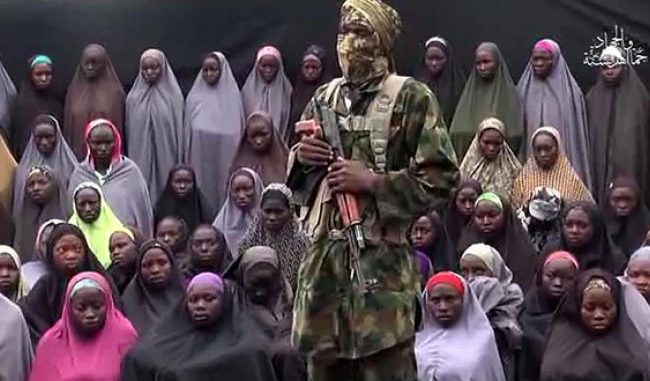
Nigerian gunmen have kidnapped more than 300 students and teachers from a school in north central Niger state in one of the country’s largest mass abductions.
Since Islamist militants kidnapped nearly 300 schoolgirls from Chibok town more than a decade ago, Nigeria has struggled with a series of mass kidnappings, mostly carried out by criminal gangs looking for ransom payments.
Often, gunmen attack remote boarding schools where they know a lack of security presence will make for soft targets. Most victims are released after negotiations.
Here are some of the country’s worst mass kidnapping incidents.
– Chibok girls –
In April 2014, Boko Haram jihadists attacked a girls school in Chibok in northeast Borno State, the centre of Nigeria’s long-running Islamist insurgency that has killed more than 40,000 people since 2009.
Boko Haram leader Abubakar Shekau said he would sell off the girls, mostly Christians. The attack triggered the #BringBackOurGirls movement.
Some of the girls escaped early on, others were released or rescued by security forces. Some returned with children they gave birth to in captivity. Dozens of the Chibok girls are still missing.
The army rescued one of the girls as late as 2024.
Militants led another kidnapping of more than 100 schoolgirls in Dapchi in nearby Yobe state in 2018.
– Kankara boys kidnapping –
In the first major kidnapping in a year-long string of mass abductions, a criminal gang snatched 344 pupils from a boys boarding school in Kankara in Katsina state in December 2020. They were released a few days later. The kidnapping took place as then President Muhammadu Buhari was visiting his home state Katsina.
Auwalun Daudawa, the bandit leader who carried out the raid, surrendered to authorities in an amnesty deal. He was later killed in fighting.
– Zamfara Jangebe raid –
In February 2021, a kidnap gang raided the Government Girls Science Secondary school in the remote Jangebe village in northwest Zamfara state, snatching 279 female students aged under 18 years old.
Some of the girls said they were forced to walk for miles to the bandit’s camp. After negotiations, they were released from captivity in forest hideouts.
– Bethel Baptist school –
In July 2021, a criminal gang opened fire and overpowered security guards after storming the Bethel Baptist High School in northwest Kaduna state. They snatched around 120 pupils as they slept in their dormitories. Some of them escaped while others were released in batches over months.
By the time of the Bethel attack, around 1,000 schoolchildren had been kidnapped since the start of the year in different raids. Many were released after ransom payments.
An envoy who delivered a ransom payment for the release of the Bethel children was himself kidnapped after he handed over the money.
– Kaduna train attack –
In one of the country’s most high-profile kidnapping attacks, in March 2022, gunmen used explosives to blow up tracks, and then opened fire and raided a train travelling from the capital Abuja to the northwestern city of Kaduna.
They snatched dozens of people from the train and killed eight more. The attack shocked Nigerians who had shifted to taking trains to avoid rural highways where kidnappings are common. The use of explosives made some experts suspect the kidnap gang worked with Islamist militants to carry out the attack.
The last of the hostages were released months later after negotiations.
Gunmen also attacked a train station in southern Nigeria in 2023, kidnapping about 30 people and wounding others. Security forces later rescued them.
– Kuriga high school –
In March 2024, students were just settling into their classes at Kuriga high school in Kaduna, when dozens of gunmen dressed in military uniforms rode on motorbikes into the school grounds.
More than 100 schoolchildren were rounded up and kidnapped. Initially teachers had said 280 were snatched, though the military later the same month said it had rescued all 137 pupils who had been kidnapped.
Leave a Reply